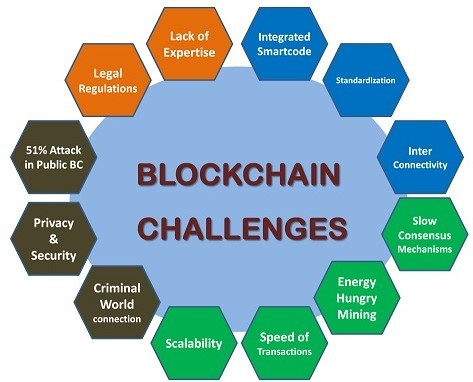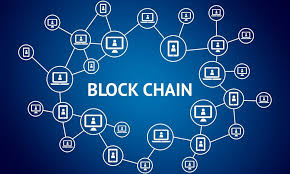
Non-Fungible Tokens (NFTs): Revolutionizing Digital Ownership
9jatechbros
- 1
- 32
Non-Fungible Tokens (NFTs) have taken the world by storm, creating new avenues for digital ownership and transforming various sectors such as art, music, sports, and even real estate. This comprehensive exploration delves into the world of NFTs, their impact, the opportunities they present, and the challenges they face, all in an easily understandable Nigerian English.
What Are NFTs?
NFTs are unique digital assets verified using blockchain technology. Unlike cryptocurrencies like Bitcoin or Ethereum, which are fungible (each unit is the same as the next), NFTs are one-of-a-kind. This uniqueness makes them ideal for representing ownership of digital items such as art, music, videos, virtual real estate, and more.
The Genesis of NFTs
NFTs emerged from the same blockchain technology that powers cryptocurrencies. Ethereum, with its robust smart contract functionality, has been the primary blockchain for NFTs. The first significant NFT project, CryptoPunks, was launched in 2017, but it was the 2021 explosion in NFT popularity that truly brought them into the mainstream.
How Do NFTs Work?
NFTs are created, or “minted,” using blockchain technology. When an NFT is minted, it is recorded on the blockchain, a decentralized digital ledger that ensures the authenticity and ownership of the NFT. This process involves the following steps:
1. Creation: An artist or creator makes a digital item and converts it into an NFT.
2. Minting: The digital item is minted on a blockchain, usually Ethereum, creating a unique token that represents the item.
3. Ownership:*The NFT is then stored in a digital wallet, and ownership is transferred via blockchain transactions.
The Impact of NFTs
Art and Creativity
NFTs have significantly impacted the art world, providing artists with new ways to monetize their work. Digital artists who previously struggled to prove ownership or profit from their creations now have a platform where their work can be bought, sold, and resold, with royalties often going back to the original creator.
Key Benefits:
– Direct Sales: Artists can sell directly to buyers, bypassing traditional intermediaries like galleries.
– Royalties: Smart contracts can ensure that artists receive a percentage of sales every time their work is resold.
– Global Reach: The digital nature of NFTs allows artists to reach a global audience, expanding their market significantly.
Music and Entertainment
Musicians and entertainers are also leveraging NFTs to gain more control over their work and generate new revenue streams. NFTs can represent music tracks, albums, concert tickets, and exclusive experiences, giving fans a unique way to engage with their favorite artists.
Key Benefits:
– Ownership and Control: Artists can retain ownership of their work and earn directly from their fans.
– Exclusive Content: Musicians can offer exclusive content or experiences to NFT holders, enhancing fan engagement.
– New Revenue Streams: NFTs provide additional income sources through direct sales and royalties.
Sports and Collectibles
The sports industry has embraced NFTs, creating digital collectibles such as trading cards, highlights, and memorabilia. Platforms like NBA Top Shot have popularized this concept, allowing fans to own a piece of their favorite sports moments.
Key Benefits:
– Authenticity: Blockchain ensures the authenticity and rarity of digital collectibles.
– Fan Engagement: NFTs offer fans a new way to engage with their favorite teams and players.
– Monetization: Teams and athletes can monetize their popularity through NFT sales.
Virtual Real Estate
In the virtual world, NFTs are being used to buy, sell, and trade virtual real estate. Platforms like Decentraland and The Sandbox allow users to purchase virtual land, build on it, and create unique experiences, all represented by NFTs.
Key Benefits:
– Ownership: Users can own and develop virtual properties, creating value in the digital realm.
– Interactivity: Virtual real estate can be used to host events, sell digital goods, and create immersive experiences.
– Investment Opportunities: Virtual land can appreciate in value, offering investment opportunities similar to physical real estate.
The Nigerian Context
In Nigeria, the adoption of NFTs presents unique opportunities and challenges. The country’s vibrant creative community, including artists, musicians, and content creators, can benefit immensely from NFTs by reaching a global market and ensuring fair compensation for their work. However, there are several factors to consider.
Opportunities:
– Showcasing Talent: Nigerian artists and musicians can use NFTs to showcase their talent to a global audience.
– Economic Empowerment: NFTs can provide new income streams for creatives, contributing to economic empowerment.
– Cultural Preservation: NFTs can be used to preserve and promote Nigerian culture and heritage in the digital realm.
Challenges:
– Technical Knowledge: Understanding and using blockchain technology and NFTs requires technical knowledge that may be a barrier for some.
– Internet Access: Limited internet access and high data costs can hinder the adoption of NFTs.
– Regulatory Environment: The regulatory environment for cryptocurrencies and NFTs in Nigeria is still evolving, which can create uncertainty for creators and investors.
The Future of NFTs
The future of NFTs is promising, with potential advancements and broader adoption across various sectors. Here are some trends and developments to watch:
Integration with Physical Assets
NFTs could bridge the gap between the digital and physical worlds by representing ownership of physical assets. This could include anything from real estate and vehicles to physical art and luxury goods. By using NFTs, ownership and provenance can be easily tracked and transferred.
Enhanced Interoperability
As the NFT ecosystem grows, enhanced interoperability between different blockchain networks could make it easier to trade and use NFTs across various platforms. This would increase the liquidity and utility of NFTs, benefiting creators and investors alike.
Regulatory Developments
As governments and regulatory bodies become more familiar with NFTs, clearer regulations and guidelines are likely to emerge. This will provide greater legal certainty for creators, investors, and platforms, fostering a more stable and secure environment for NFT transactions.
Environmental Concerns
One of the significant criticisms of NFTs is their environmental impact, particularly the energy consumption associated with blockchain networks like Ethereum. The industry is actively seeking solutions to mitigate this impact, such as transitioning to more energy-efficient blockchain technologies and exploring alternative consensus mechanisms like Proof of Stake (PoS).
Expansion into New Sectors
NFTs have already made their mark in art, music, sports, and virtual real estate, but their potential applications are vast. Sectors such as education, healthcare, and governance could also benefit from the unique properties of NFTs. For example, NFTs could be used to verify educational credentials, manage patient records, or streamline government processes.
Conclusion
Non-Fungible Tokens (NFTs) are revolutionizing digital ownership and creating new opportunities for creators and consumers alike. From empowering artists and musicians to transforming the sports and virtual real estate industries, NFTs offer a new way to own, trade, and interact with digital and physical assets.
In Nigeria, NFTs hold the potential to showcase the country’s vibrant creativity on a global stage, drive economic empowerment, and preserve cultural heritage. However, challenges such as technical knowledge, internet access, and regulatory uncertainty must be addressed to fully realize this potential.
As the NFT ecosystem continues to evolve, it will be crucial to monitor trends and developments, particularly regarding environmental sustainability and regulatory frameworks. With the right strategies and support, NFTs can become a powerful tool for innovation and economic growth, not just in Nigeria, but worldwide.
By embracing the opportunities and addressing the challenges, we can harness the power of NFTs to create a more inclusive and dynamic digital economy, paving the way for a future where digital ownership is as meaningful and impactful as physical ownership.




I don’t think the title of your article matches the content lol. Just kidding, mainly because I had some doubts after reading the article.